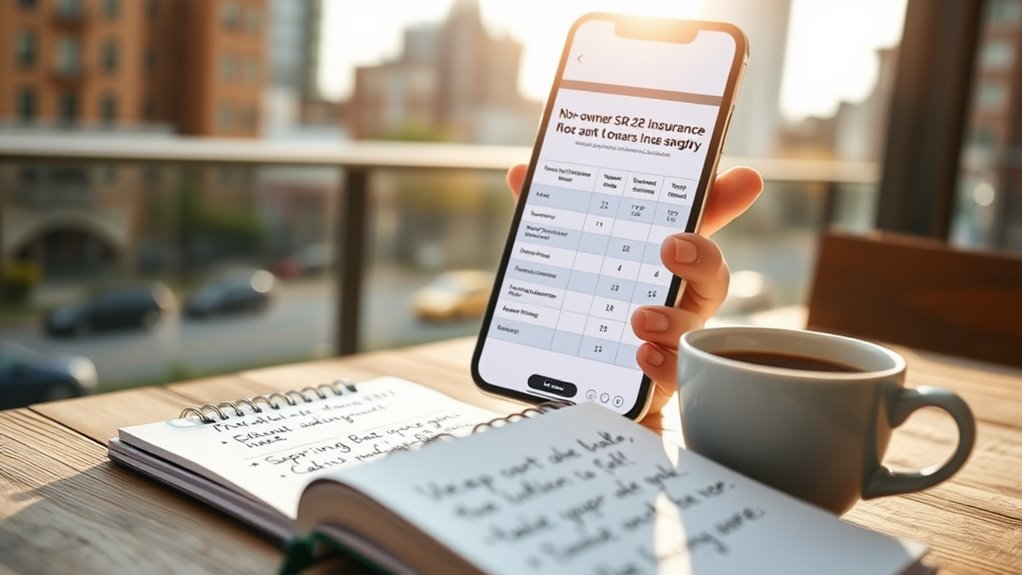Steps to Acquire SR22 Insurance Without a Vehicle
Finding your way through the world of SR22 insurance can feel like trying to find your way through a maze without a map. If you don't own a vehicle, it's essential to understand how to secure non-owner SR22 coverage. Not all insurers offer this option, and knowing the right steps can make all the difference. So, what's the first move you should make to guarantee you meet your state's requirements?
If you find yourself needing to reinstate your driver's license after serious traffic violations but don't own a vehicle, non-owner SR22 insurance is your solution. This type of insurance serves as proof of financial responsibility, allowing you to meet state requirements after infractions like DUI, reckless driving, or driving without insurance. While you may not own a vehicle, you can still obtain this insurance to comply with court orders or state mandates. Affordable SR-22 insurance options can help make this process more manageable.
To get started, you'll first need to find an insurance provider that offers non-owner SR22 coverage. Not all insurers include this option, so it's imperative to check with potential providers. When you contact them, be sure to inform them of your SR22 requirement to guarantee they can help you with the necessary filings.
Finding an insurer that offers non-owner SR22 coverage is essential; ensure you disclose your SR22 requirement for proper assistance.
It's significant to understand that while non-owner SR22 insurance provides liability coverage, it won't cover extensive or collision damages, especially if you borrow a vehicle. This insurance is designed for individuals without a car needing SR22 insurance.
Next, you'll need to fulfill your state's liability coverage requirements. Each state has different mandates for minimum coverage, so it's important to familiarize yourself with those regulations. Once you have selected an insurer and determined the appropriate coverage, you'll pay an initial premium to initiate the policy.
After this, the insurance company will file the SR22 form with the Department of Motor Vehicles (DMV), which is a crucial step in the reinstatement process.
Be prepared for some additional costs along the way. While the premiums for non-owner policies are generally lower than traditional car insurance, being classified as a high-risk driver can still lead to increased rates. Factors contributing to this classification include repeated infractions and DUIs.
You may also encounter a filing fee, which typically ranges around $25, but this can vary by state and insurance provider.
It's wise to shop around for quotes to find the best rates and even consider bundling options if you have other insurance needs. Some insurers may offer discounts for bundling, allowing you to save money in the long run.
Keep in mind that maintaining your non-owner SR22 insurance is a requirement for at least three years, and your premiums may decrease once this period concludes.
After you've completed the filing process, stay vigilant about compliance. Insurers often conduct periodic checks to verify your policy remains active. If you allow your coverage to lapse, you risk facing further suspensions of your driver's license.
Acquiring non-owner SR22 insurance may seem challenging at first, but by following these steps and staying informed, you can successfully navigate the reinstatement process without a vehicle. It's all about understanding your responsibilities, choosing the right insurer, and maintaining compliance with your state's regulations.
Conclusion
Acquiring SR22 insurance without a vehicle may seem overwhelming, but it's like traversing a winding road—you just need to know the right turns. By choosing a provider that offers non-owner coverage and ensuring you meet your state's requirements, you can easily get back on track. Remember, communication with your insurer is key, and once the SR22 form is filed, you'll be one step closer to reinstating your driving privileges. Stay informed and keep moving forward!



